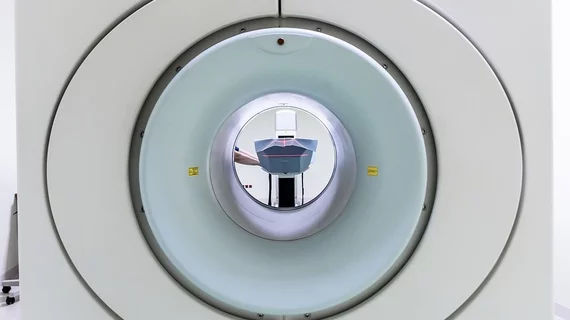Scientist awarded $250K for AI project slashing MRI read times
A Seattle-based researcher will receive $250,000 to further his work using artificial intelligence-based methods to cut MRI read times, according to an announcement from the American Heart Association.
Chun Yuan, PhD, professor of radiology and bioengineering at the University of Washington, won the grant through a scientific competition put together by the AHA’s Precision Medicine Platform and powered by Amazon Web Services. The contest focuses on how AI and machine learning can synthesize data to advance precision medicine.
As part of the contest, Yuan used the AHA’s data analytics workspace to dramatically reduce the time necessary to read an MRI from four hours down to seven minutes. The cloud-based program can identify artery locations and vessel wall contours, quantify vascular markers and find diseased arteries in MR knee scans without human readers. The approach could one day make diagnosing cardiovascular conditions much faster and easier, according to a statement.
“The especially exciting thing about this research is that we are able to use our technology to detect diseased blood vessels in knee images that were not acquired with that in mind, as well as using artificial intelligence to greatly shorten the time it takes to review these images,” Yuan said in the same announcement.
The AHA’s Institute for Precision Cardiovascular Medicine is providing Yuan $200,000 over a 2-year period, with another $50,000 in AWS service credits. He is also receiving a $10,000 prize from AWS and the association’s Circulation: Genomic and Precision Medicine Journal.
According to the AHA, it has handed out 93 awards since 2013, totaling $30.2 million in grant funding, and more than $2 million in AWS cloud credits.

